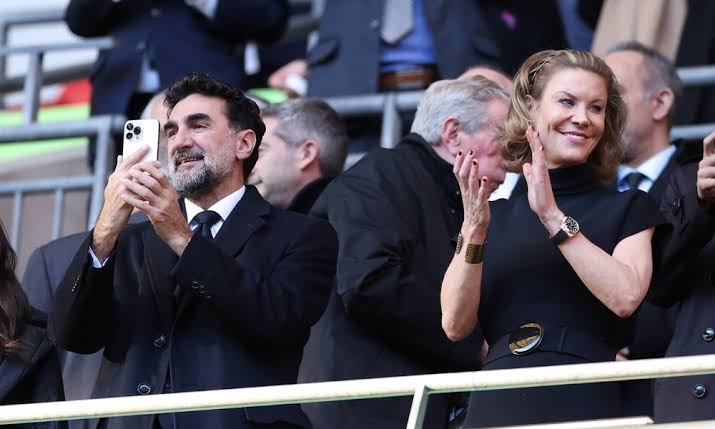BREAKING NEWS- Newcastle owners PIF working on 14 deals as off-pitch masterplan revealed to make fans go wild
Since acquiring Newcastle United for a substantial £305 million in 2021, the Saudi Public Investment Fund (PIF) has made no secret of its grand ambitions—not only within football but across a broad spectrum of sports. As part of their expansive vision, the PIF is currently negotiating 14 business deals that could significantly influence their global strategy, signaling a transformative period for sports investment and management.
The acquisition of Newcastle United was merely the beginning of PIF’s foray into the sports world. Saudi Arabia is set to host the World Cup in 2030, further solidifying its place on the global sports stage. Over the past few years, PIF has invested heavily in a variety of sports, including motorsport, boxing, tennis, and golf. These investments are part of a broader effort to diversify the kingdom’s economy and reduce its dependence on oil revenues.
Despite these wide-ranging interests, club football remains PIF’s primary focus. The ambitions for Newcastle United are grounded in strict adherence to the Premier League’s Profit and Sustainability Rules. These regulations are designed to ensure that clubs operate within their means, promoting financial stability and fair competition. To further solidify their global brand, PIF has also been leveraging their own domestic league, aiming to elevate the profile and competitiveness of Saudi football on the world stage.
In a strategic and unprecedented move, PIF has announced plans to privatize six state-owned clubs within the Saudi football pyramid. Journalist Ben Jacobs reports that these clubs are Al-Zulfi, Al-Nahda, Al-Okhdood, Al-Ansar, Al-Orouba, and Al-Kholoud. This privatization effort is part of a broader strategy to attract both Saudi and international investors, potentially allowing an overseas investor to acquire a Saudi club and integrate it into a multi-club network. This could revolutionize the structure of Saudi football, introducing new management practices and financial models.
Furthermore, PIF is laying the groundwork to privatize an additional eight clubs in the future. The auction for these clubs is being pitched to a wide range of investors, highlighting the kingdom’s openness to international collaboration and investment. This move aligns with Saudi Arabia’s Vision 2030, a strategic framework aimed at diversifying the economy and developing public service sectors such as health, education, infrastructure, recreation, and tourism.
While there have been discussions about Newcastle United establishing a multi-club network, there is currently no indication that this network would include a club from Saudi Arabia. However, the eventual sale of these 14 clubs could offer valuable insights into PIF’s long-term strategy within the domestic league. By moving towards privatization, PIF signals its intent for the Saudi Pro League to operate independently of state funding, fostering a more competitive and self-sustaining environment.
This strategic shift may not have a direct impact on Newcastle United, but it could alter the dynamics of player transfers within the PIF-owned clubs. For example, Newcastle’s Miguel Almiron has been linked with a potential move to the Middle East. The privatization of Saudi clubs could close off certain pathways for such intra-group player sales, thereby influencing the broader transfer market and necessitating new strategies for player acquisition and management.
PIF’s efforts are part of a larger vision to elevate Saudi Arabia’s standing in the global sports arena. The country’s investments in infrastructure, talent development, and international partnerships are designed to create a thriving sports ecosystem that attracts global attention and investment. The success of these initiatives could set a precedent for other nations looking to leverage sports for economic and social development.
As PIF continues to shape its global sports strategy, the focus remains on balancing domestic growth with international expansion. The privatization of Saudi clubs and ongoing investments in various sports indicate a calculated approach to establishing a sustainable and influential presence in the global sports arena. For Newcastle United, this could mean new opportunities and challenges as they navigate the evolving landscape under the ownership of the ambitious Saudi Public Investment Fund.
In the coming years, it will be interesting to observe how these strategic moves impact both the domestic and international sports scenes. The potential for increased competition, new business models, and enhanced global cooperation could transform the way sports are managed and enjoyed worldwide. As Saudi Arabia positions itself as a major player in the sports industry, the ripple effects of PIF’s investments and strategies will likely be felt across the globe, heralding a new era of sports globalization and innovation.
